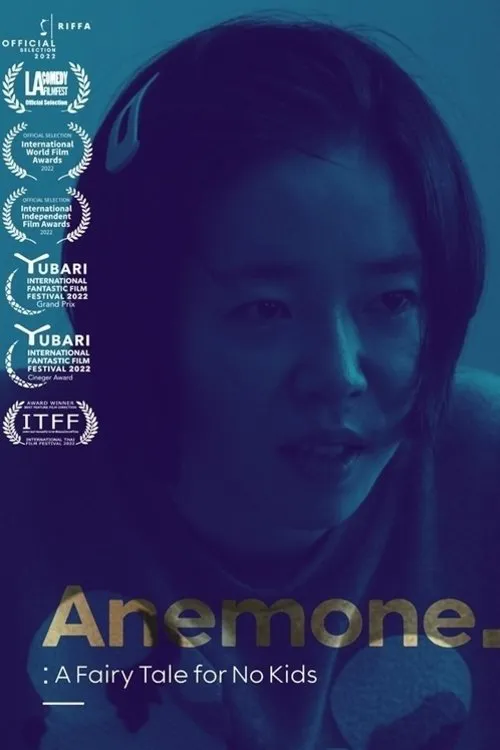Anemone: A Fairy Tale for No Kids

Intrigue
In Anemone: A Fairy Tale for No Kids, a darkly comedic tale emerges as Jung Yi-rang plays Yong-ja, an ordinary day laborer beset by financial struggles. It is in this setting that an extraordinary event unfolds - Yong-ja's husband inexplicably wins a staggering amount of money in the lottery, courtesy of numbers she had shared with him. The miraculous win sends shockwaves through the couple's lives, precipitating a series of bizarre, and at times morbid, events. As news of the lottery win spreads, the mundane world around Yong-ja and her husband transforms into a grotesque, nightmarish reality. The couple's poverty-stricken neighborhood is suddenly flooded with a mix of opportunistic individuals vying for a piece of their newfound wealth. Among these opportunists are their envious neighbors, greedy acquaintances, and even some of Yong-ja's coworkers who now see her as the ticket to their own financial salvation. Their constant visits and demands, accompanied by veiled threats and insincere smiles, contribute to the atmosphere of unease and desperation. Despite her better judgment, Yong-ja struggles to navigate the labyrinthine world of wealth, as she faces relentless harassment from those who have grown accustomed to her former impoverished status. At the same time, she finds herself trapped between the expectations of those around her and the harsh realities of a world transformed by their newfound wealth. As a direct result, Yong-ja begins to question the authenticity of their good fortune, ultimately becoming consumed by feelings of dread, guilt, and anxiety. Anemone: A Fairy Tale for No Kids delves into the psyche of Yong-ja as she confronts the moral implications of her husband's good fortune. With each subsequent event, her perception of the world undergoes a significant shift as the lines between good fortune and good luck blur. Her husband's actions become an enigma to her, and she struggles to understand the driving force behind the seemingly arbitrary decision that changed their lives forever. Moreover, the film portrays a world where nothing is as it seems. Yong-ja's neighbors, acquaintances, and colleagues, once a facade of genuine concern and camaraderie, gradually expose their true colors. As they jockey for positions in their social hierarchy, their desperation and self-interest come to the forefront. This portrayal raises questions about the human condition, the nature of relationships, and the consequences of external influences on one's inner life. Throughout Anemone: A Fairy Tale for No Kids, Jung Yi-rang brings depth and nuance to Yong-ja's character, capturing the turbulent emotions that accompany her as she navigates this disorienting world. Her portrayal humanizes the character, inviting the audience to share in her emotional turmoil and moral confusion. As the narrative unfolds, their emotional investment in the character grows, drawing parallels between Yong-ja's plight and their own struggles with identity, morality, and the human condition. Anemone: A Fairy Tale for No Kids presents a biting commentary on the societal norms governing relationships, wealth, and status. By shedding light on the darker aspects of human nature, the film exposes a side of the human experience that is often overlooked. It raises profound questions about our collective morality, the nature of true friendship, and the impact of external factors on personal growth and happiness. Ultimately, the narrative builds towards a thought-provoking conclusion, forcing viewers to question everything they thought they knew about the world. As the events spiral out of control and the chaos surrounding Yong-ja reaches a boiling point, only then do we grasp the gravity of her situation - that their good fortune has come with a price that may be impossible to pay. As the credits roll, Anemone: A Fairy Tale for No Kids leaves viewers with an enduring sense of unease, prompting reflection on the film's poignant themes and the dark undertones of the human experience. In weaving a complex and thought-provoking narrative, the film masterfully navigates the complexities of human relationships, the corrupting influence of wealth, and the moral ambiguities that underpin life's most pivotal moments. This captivating, black-comedy masterpiece transcends its dark premise to emerge as a searing indictment of societal norms and a poignant meditation on the human condition.
Critiques
Recommandations




